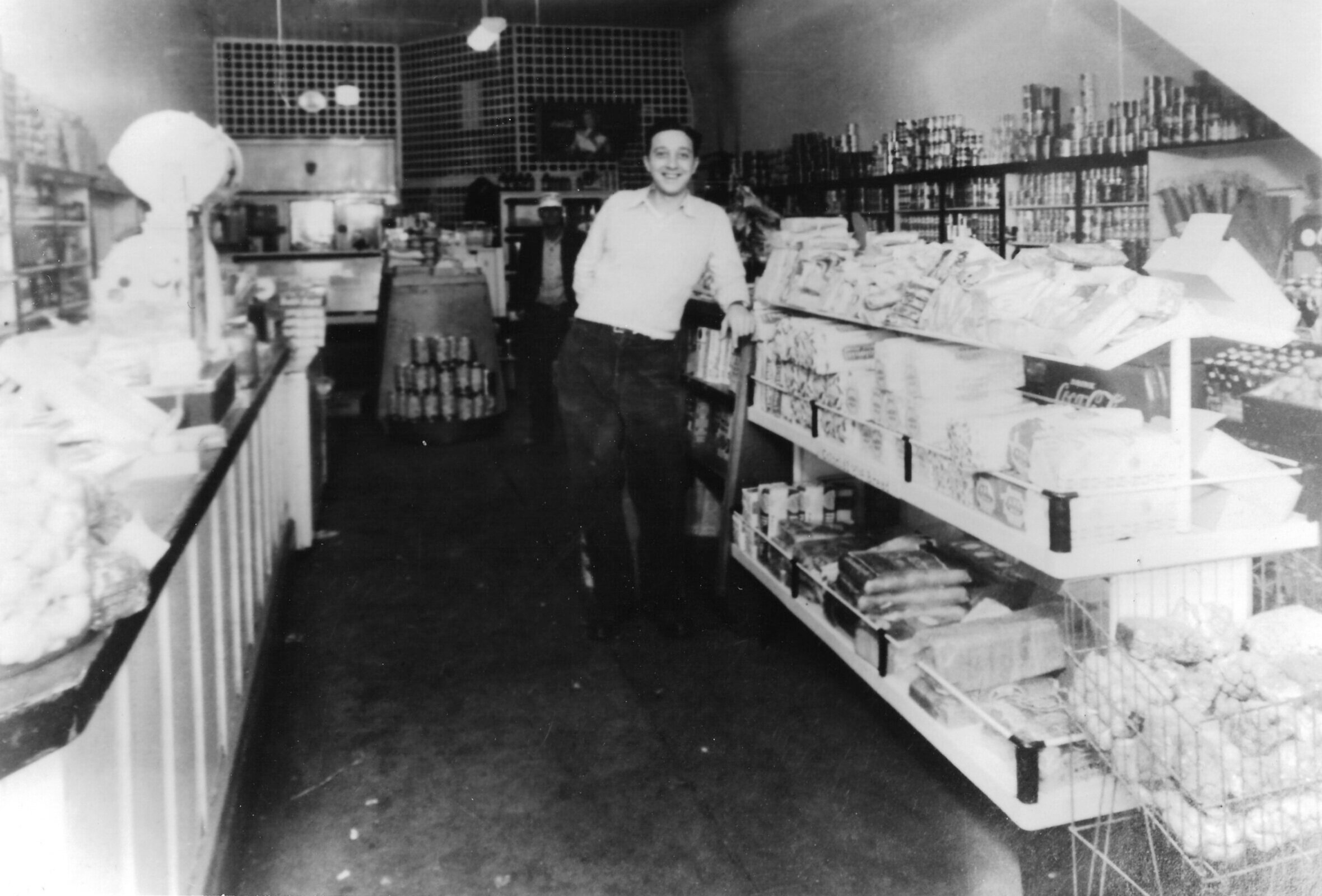Teresa Nicholas
Yazoo City
Teresa Avila Nicholas was born in 1954 and raised in Yazoo City, Mississippi. Her great-grandfather George Nicholas, was from the Mount Lebanon region of Syria but traveled to America just before the turn of the century to work as a peddling merchant in New York. His work led him to follow trade routes up and down the Mississippi River, and he ended up in Vicksburg for a time before moving to Yazoo City, where he and other Lebanese families settled, including the Thomas, Alias, Joseph, and Weber families.
George married and with his new wife, Rosa Weber Nicholas, returned to Mount Lebanon for four years, during which they had three children, Solomon, Holloman, and Mary. They returned to Yazoo City in 1904 and opened a dry goods store.
George’s son Solomon was Teresa’s grandfather, and he married the non-Lebanese sharecropping Mississippian Vasti Nicholas. They owned a grocery store on West Broadway St. in Yazoo City, Nicholas Cash Grocery (pictured below). Above the grocery was a rooming house, the Nicholas Hotel. Teresa’s uncle, Dan Nicholas, owned a successful car dealership in Yazoo City, and Teresa’s father, Solomon Jr., worked keeping the books for Dan.
During the middle years of the twentieth century, some Lebanese Mississippians aligned with members of the segregationist white community, and Teresa’s father was one of them, despite being part of a nonwhite community whom those groups could easily turn against. Teresa pushed back against that kind of thinking early on, though, particularly since she had experienced prejudice from her own white, Southern Baptist grandmother. She had even witnessed a cross being burned at her Catholic school in Yazoo City, St. Clara’s Academy. “I think it really helped me understand how to react to the civil rights movement,” she says in our interview.
After high school, Teresa left Mississippi to attend Swarthmore College in Pennsylvania. After, she married Gerard Helferich and lived and worked in publishing in New York City for twenty-five years. Over the years, she and Gerard began spending more and more time in San Miguel de Allende, Mexico, eventually moving there. It was in Mérida, Mexico, that Teresa met her Mexican Lebanese relatives, people who were kin to her great-grandmother’s family. “And guess what they did for a living?” she asks. “They owned grocery stores. They looked Lebanese, they sounded Lebanese, they ate Lebanese food, they did the things Lebanese did in terms of business.”
Teresa has since returned to Mississippi, living in Jackson with Gerard. In 2011 she published a memoir, Buryin’ Daddy: Putting My Lebanese, Catholic, Southern Baptist Childhood to Rest. She remains in touch with her Mexican-Lebanese family.
This interview with Teresa Nicholas took place in her home in Jackson on January 5, 2018.
AUDIO (Click to listen):
“[My father] probably didn’t know much Arabic. If he knew any, it would probably have been a dozen or two dozen words. He knew the curse words. We all grew up knowing those curse words, too, but I have no idea if they’re real or not. My grandmother used them as well. It was like she considered herself a very prim Southern Baptist, but she could never have cursed in English. But she loved to curse in what would have been in Arabic. Other than the bad words, I don’t know if he knew very many words at all.”
“I don’t know if [my father] was in [the White Citizens’ Council] or not, but he use to have their literature around for us to read. It was horrible. He was definitely a sympathizer, but our doctor was the head of the White Citizens’ Council. I think my father genuinely believed in some of the things they stood for because that was when he was trying to push their dogma on us as children. You know. You know it was sort of like here read this pamphlet.”
“My father wanted to send me to the segregationist academy, which was called and is called Manchester, and I refused to go. I don’t know where he thought he was going to get the money to send me there. But I stayed in the public school, and I then I wrote about it. I was the editor of the newspaper, and it became a very meaningful experience to me. But, ultimately, I think, that was why I chose to leave Mississippi. I just couldn’t stand it anymore.”
—Teresa Nicholas
PHOTOGRAPHS (CLICK TO ENLARGE):
The photographs in this collection (left to right) show Nicholas’s grandmother and grandfather, Vasti and Solomon Nicholas; Solomon Nicholas in the Nicholas Cash Gro. and Hotel (date unknown); a stamp from the family grocery store in Yazoo City, Mississippi.



